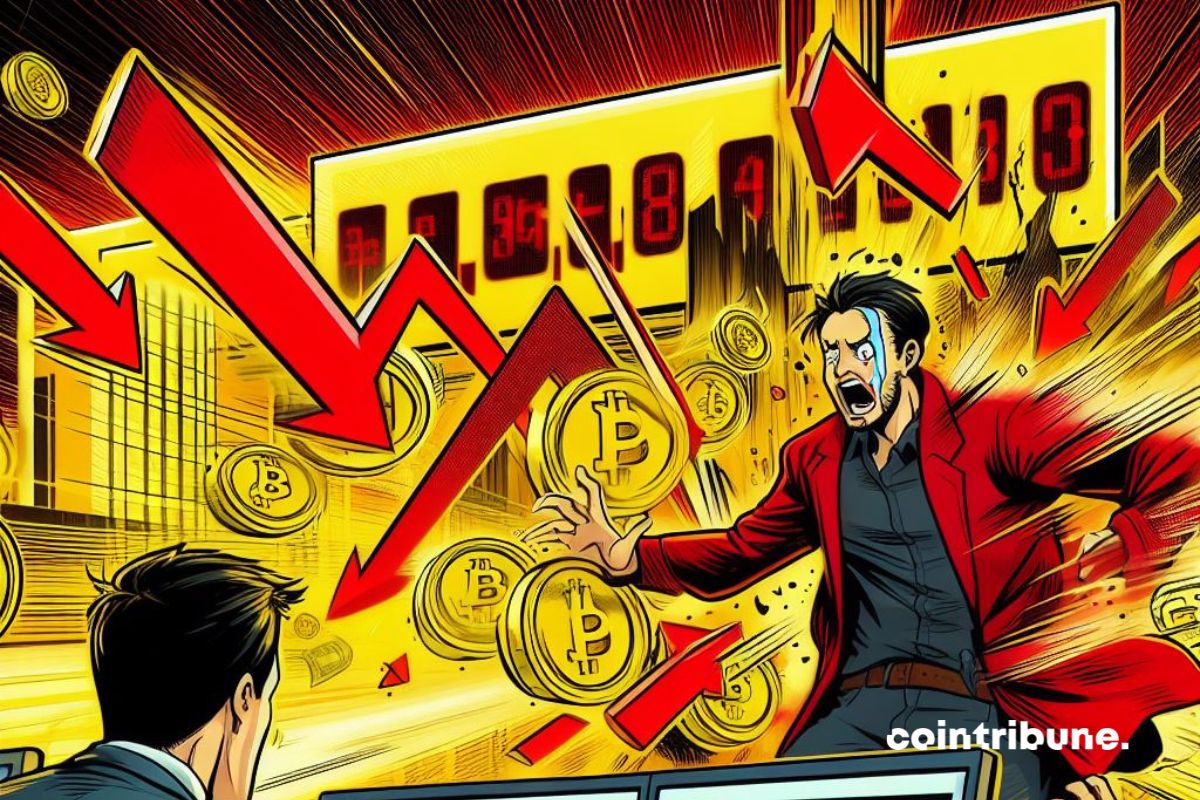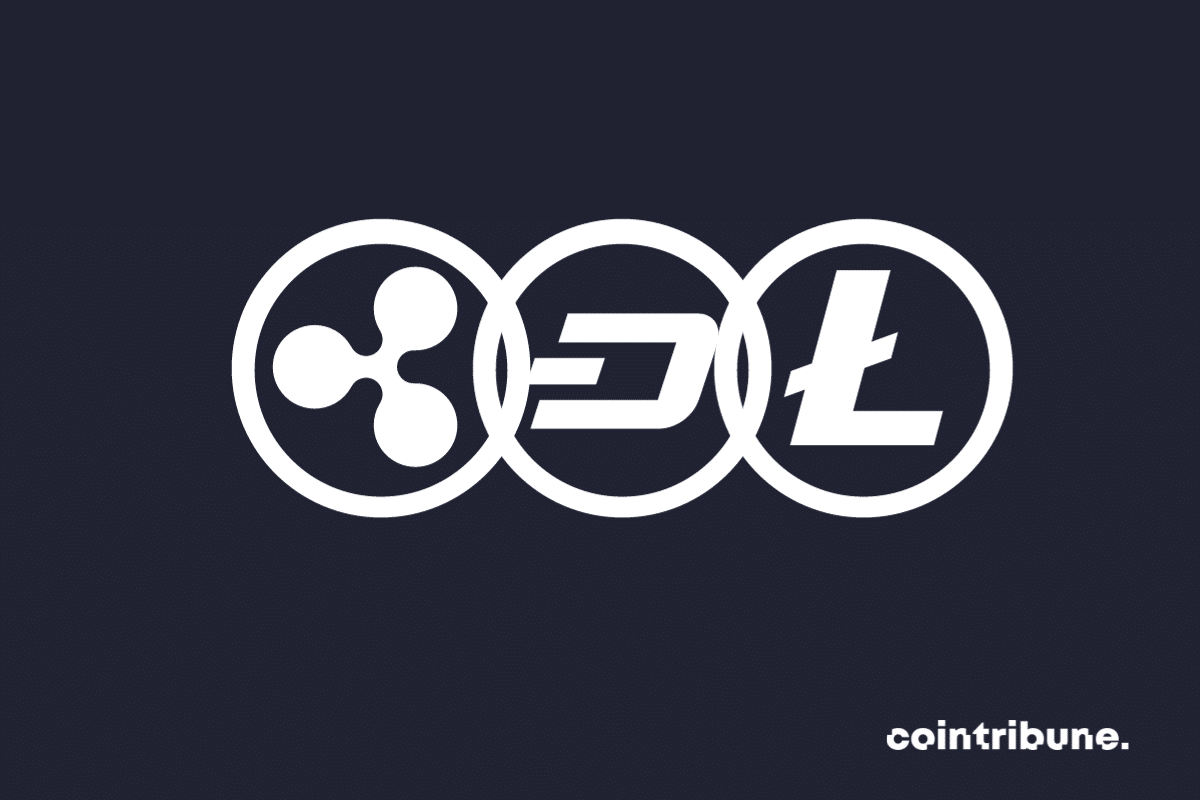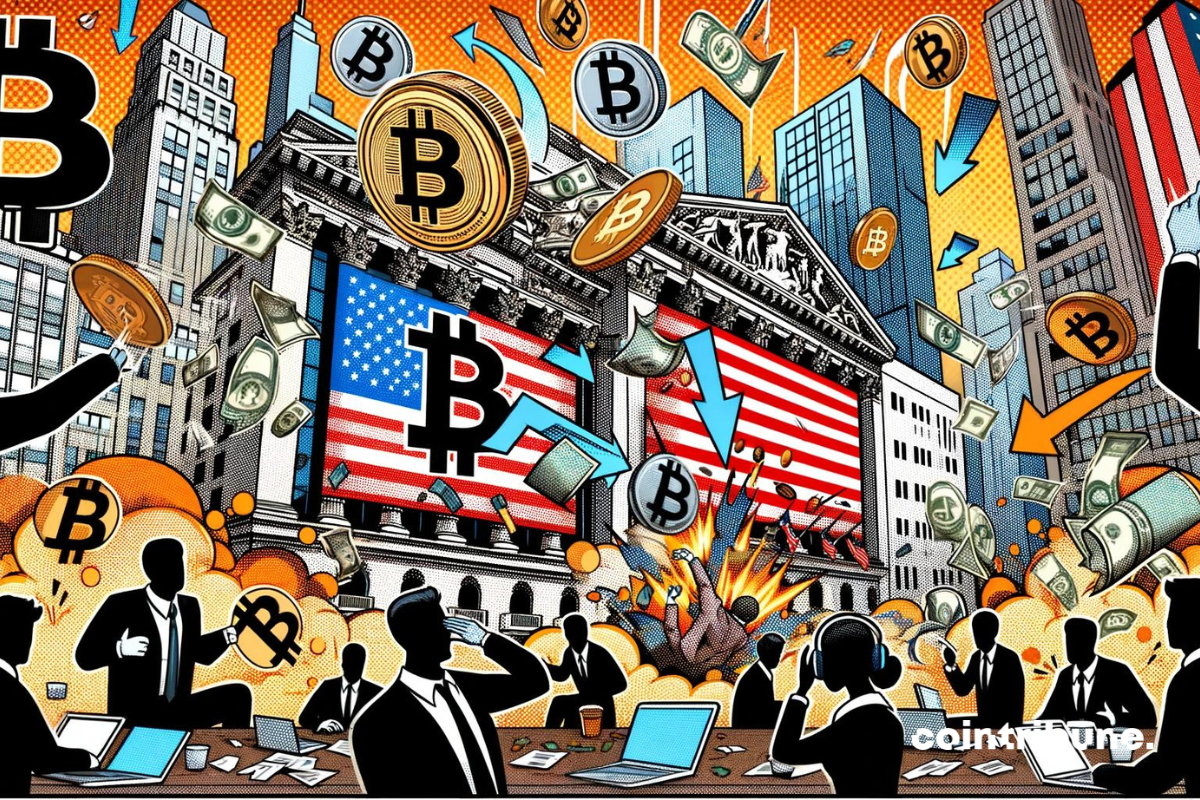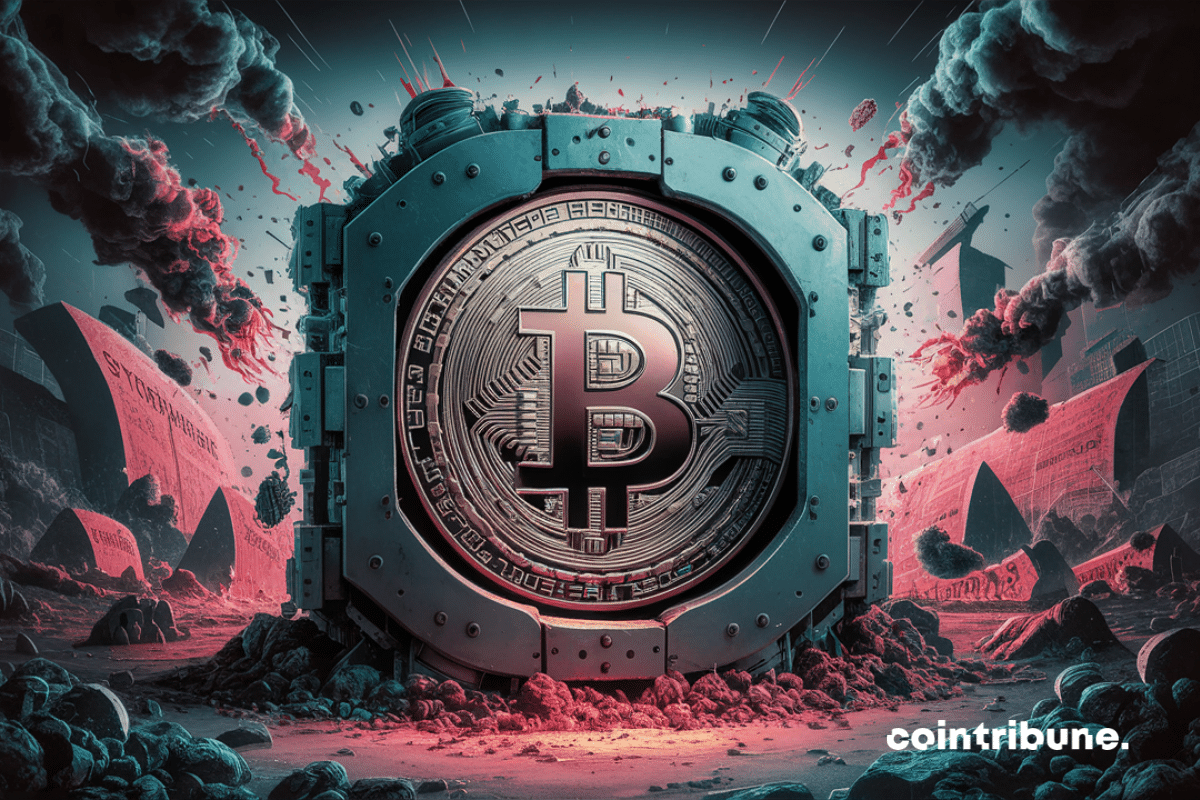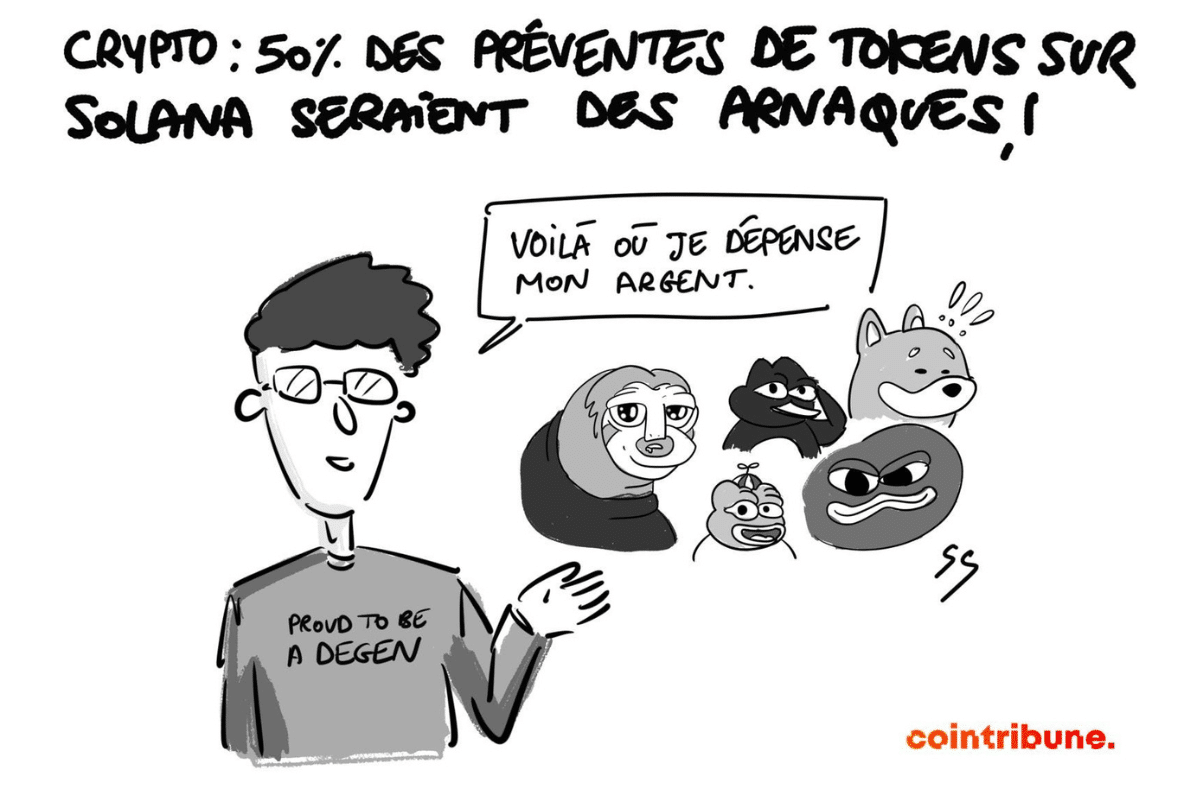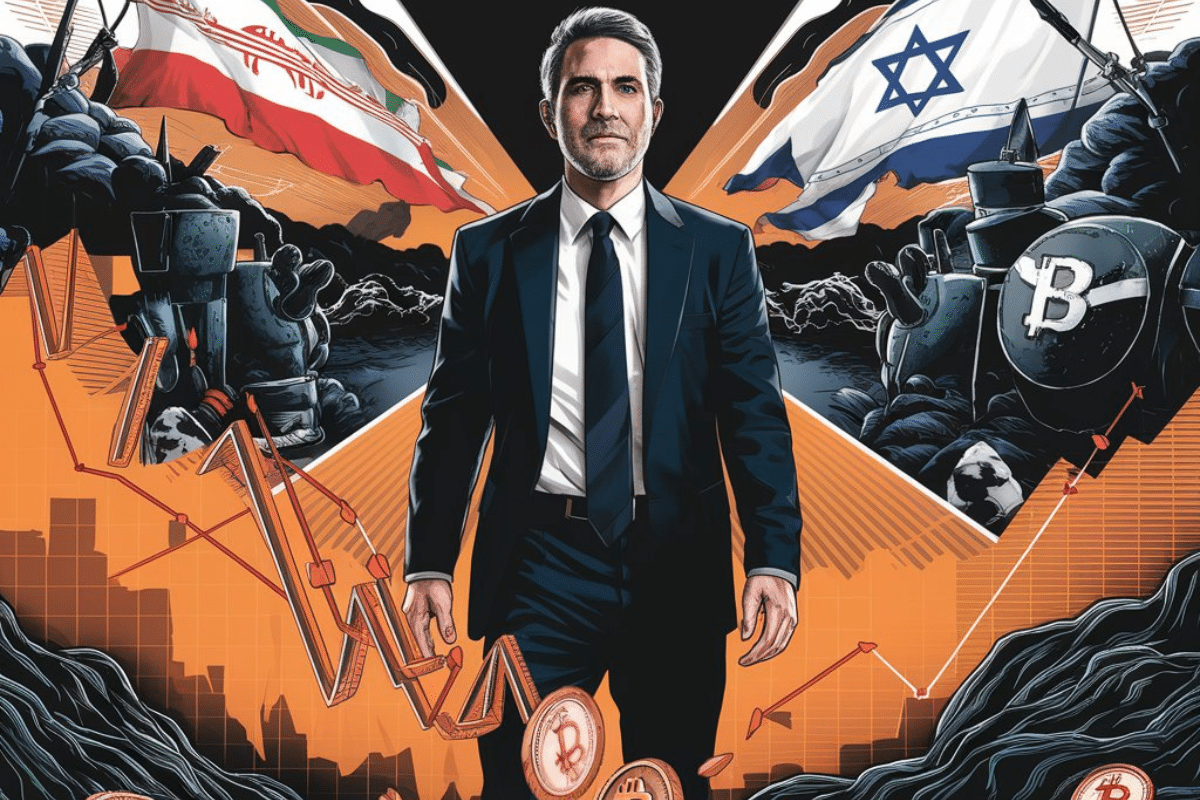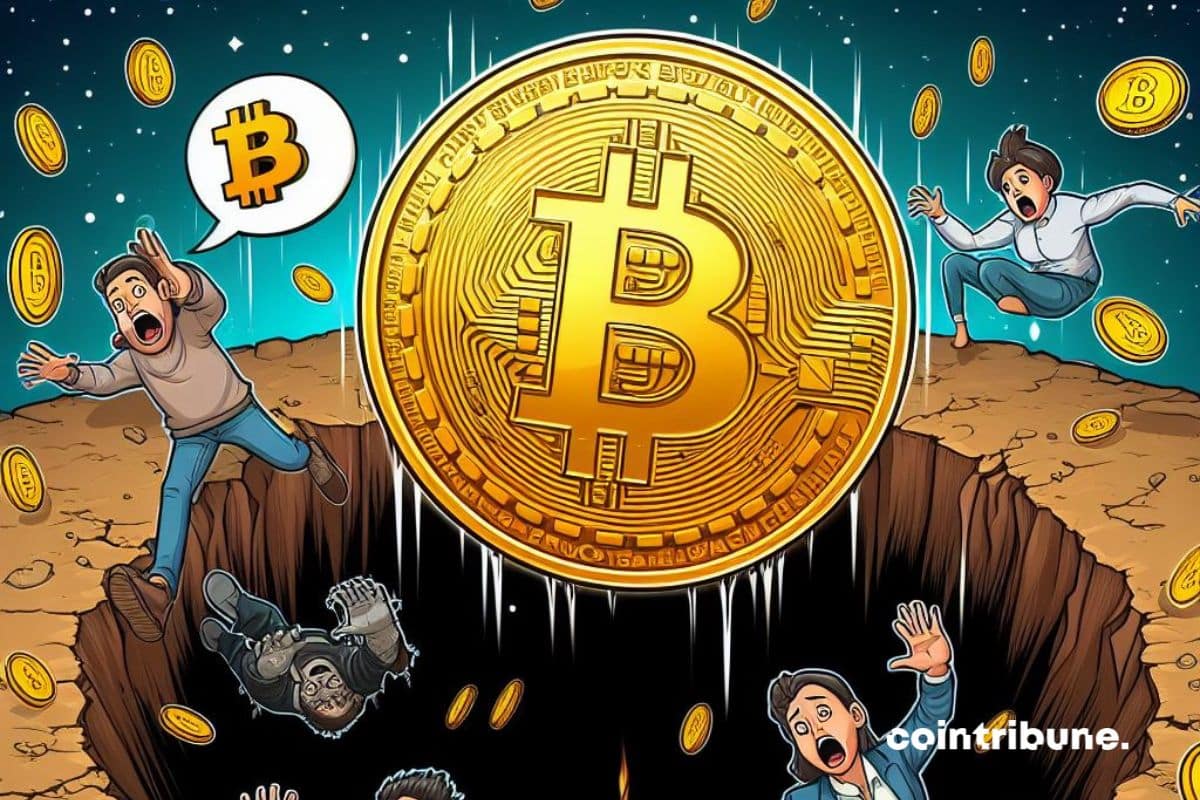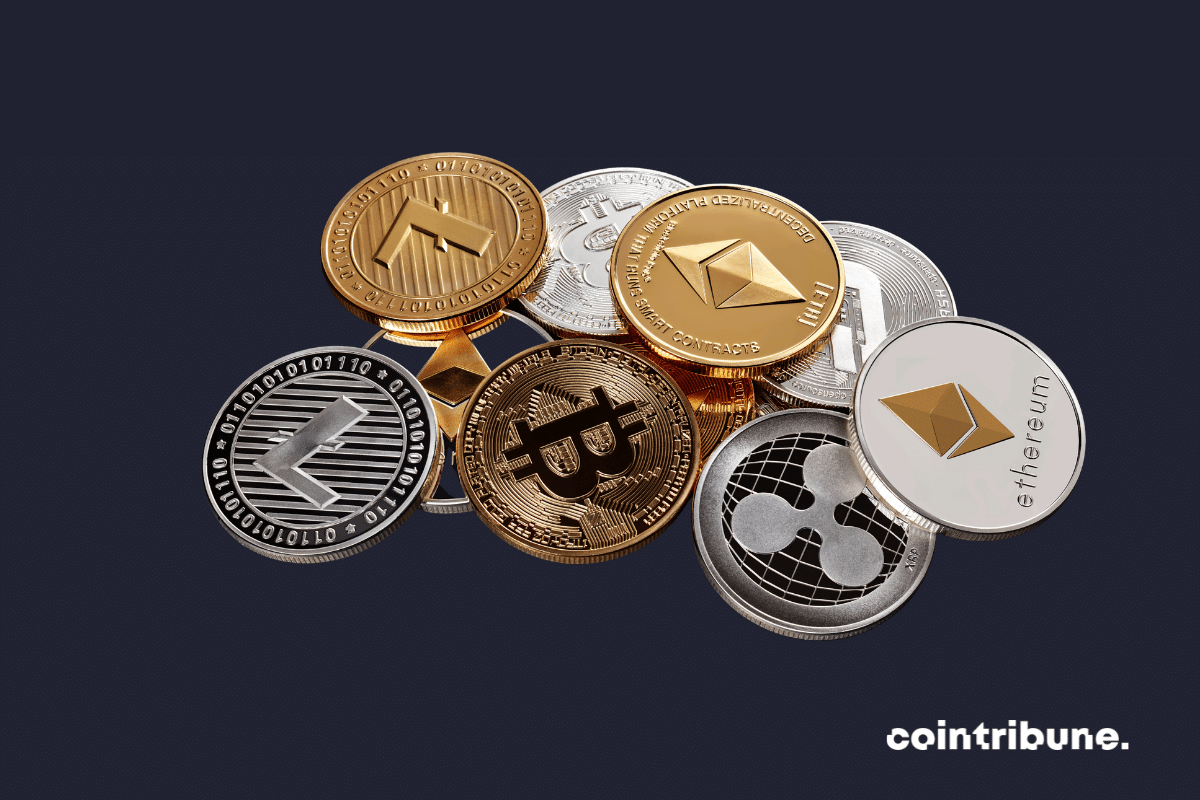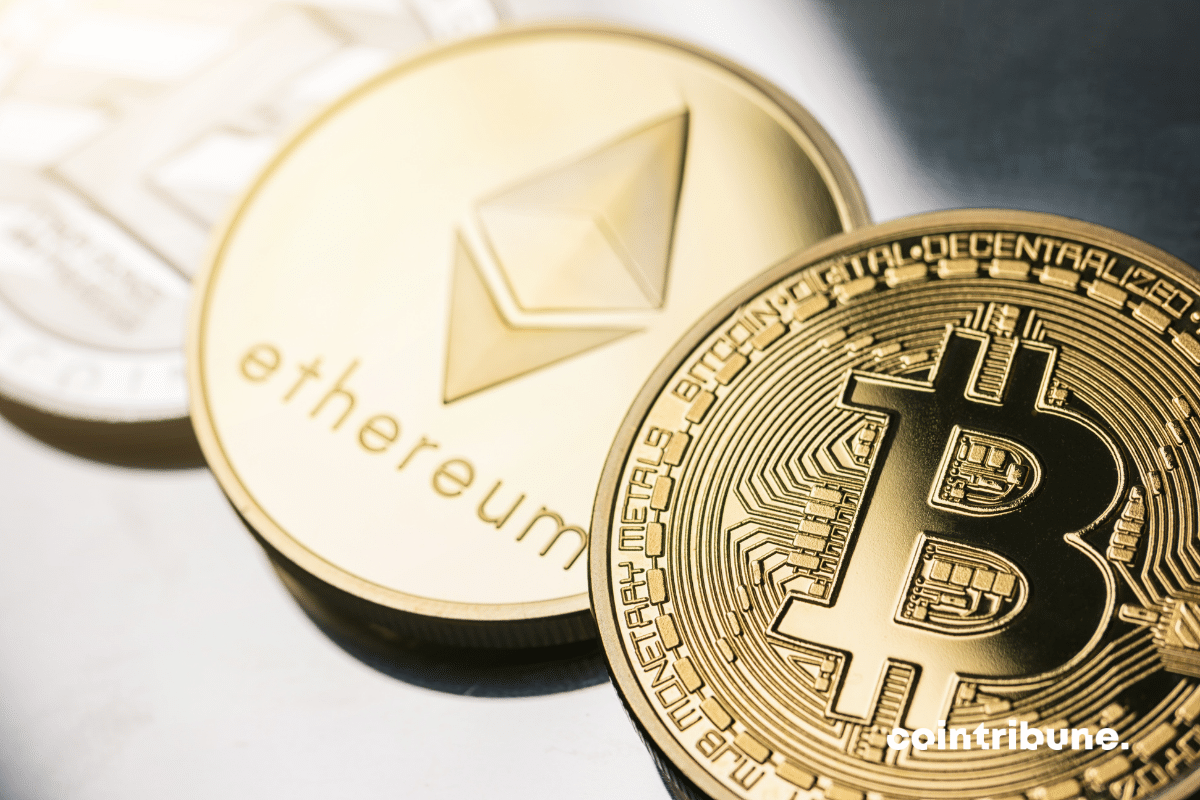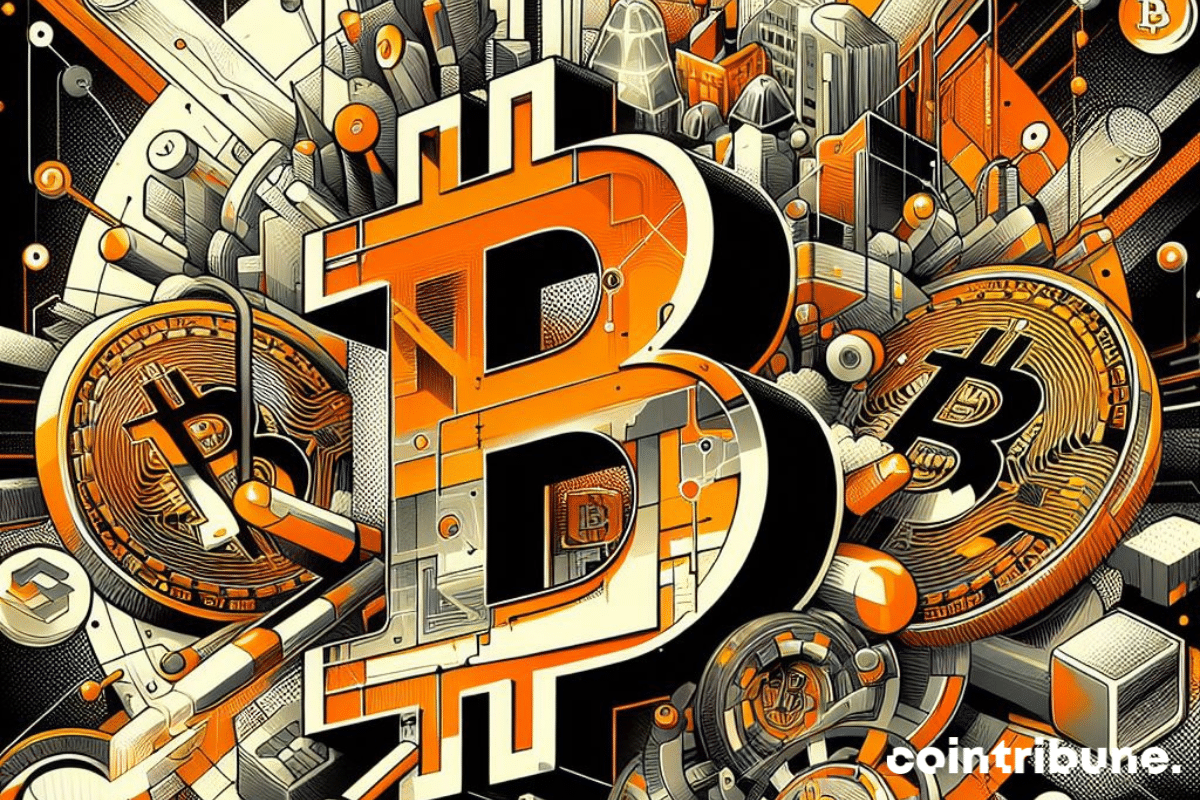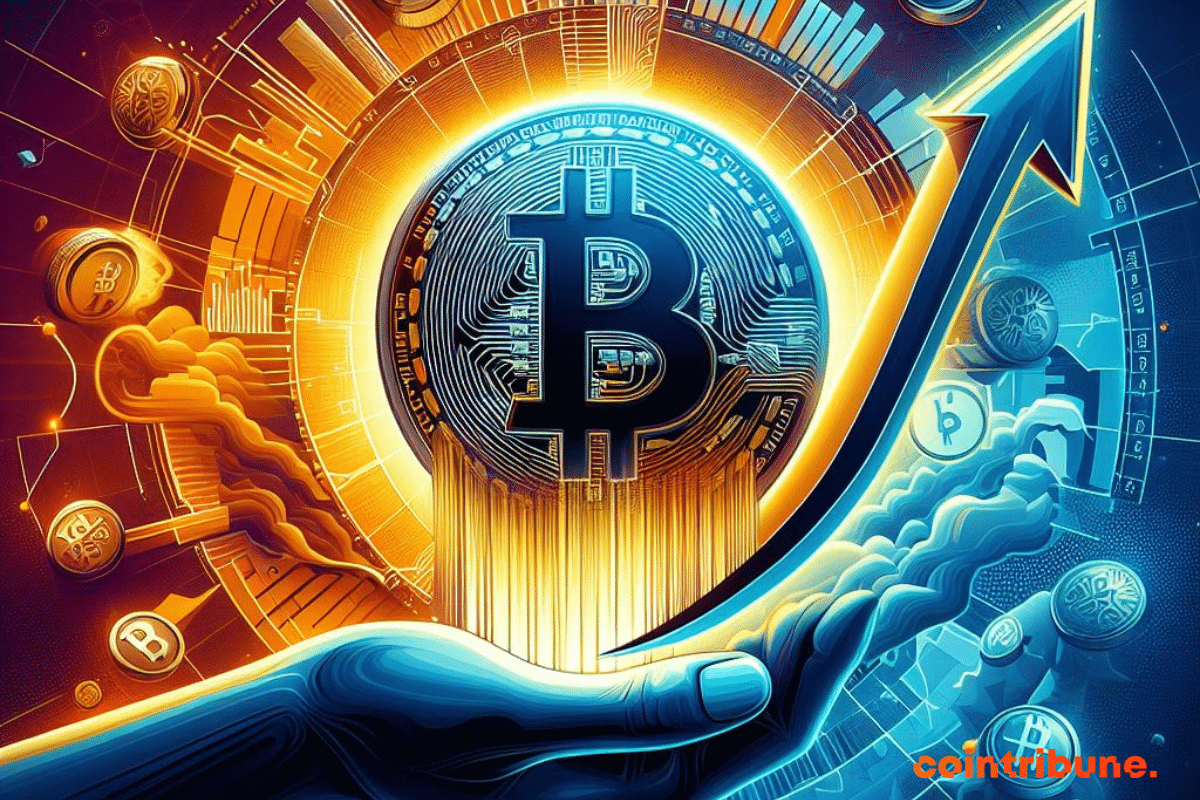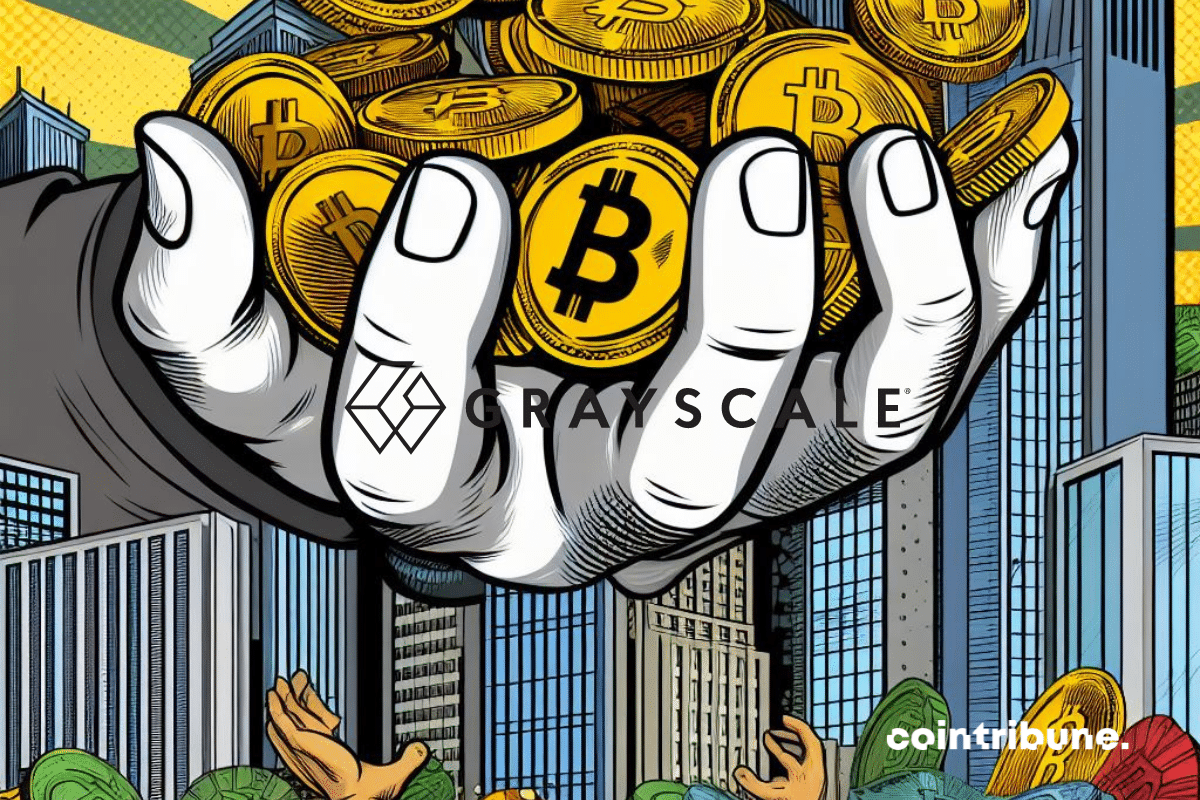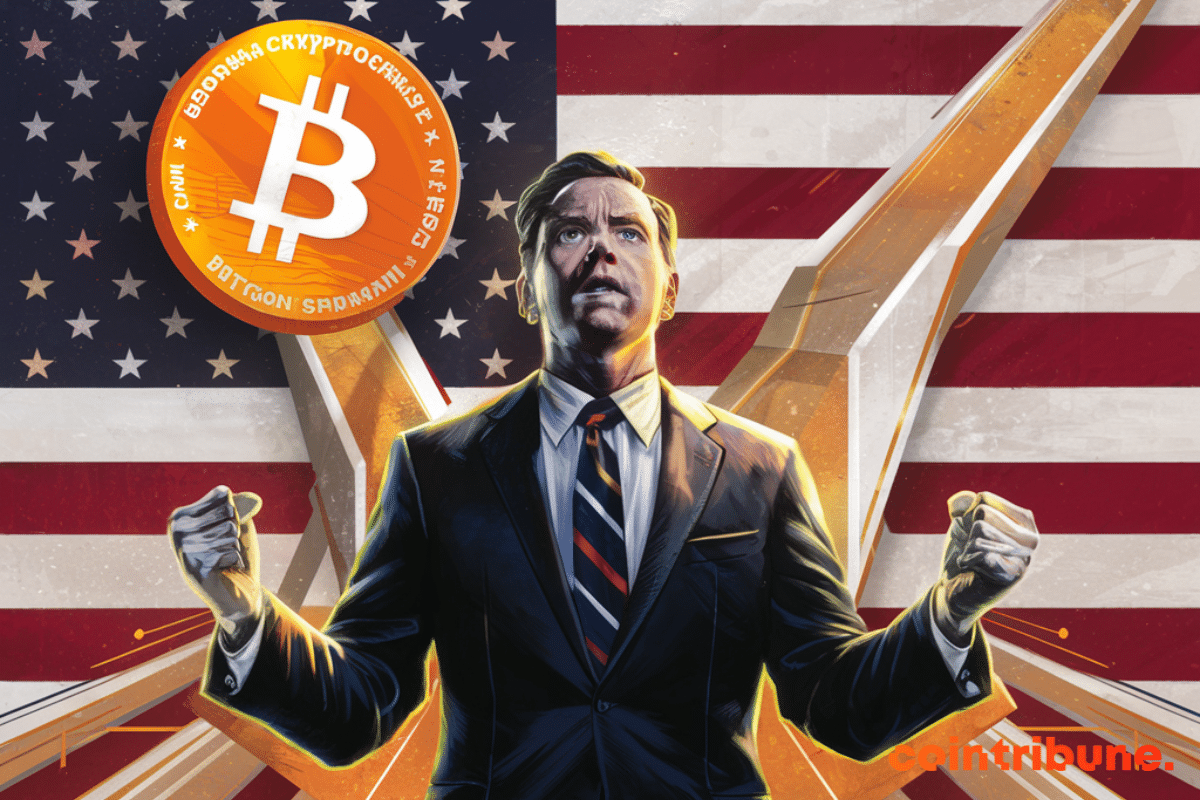The G7 is meeting this week to reach an agreement aimed at siphoning off the 300 billion dollars belonging to Russia. Need bitcoin?
Theme Bitcoin (BTC)
Bitcoin is on the brink of experiencing a key event: the 2024 halving. Scheduled for block 840,000, this phenomenon will halve the rewards given to miners, going from 6.25 to 3.125 bitcoins per block. There is particular excitement surrounding the first block that will be mined after this adjustment. The community anticipates not only a significant monetary reward but also an almost mythical status for the satoshis it will contain.
A renowned analyst warns of an imminent 20% drop in Bitcoin due to alarming signals!
The much-anticipated Bitcoin "Halving", scheduled for the weekend of April 19, 2024, raises many questions among analysts. Will this halving of the new BTC issuance have a significant impact on its inflation rate and its status as a safe haven compared to gold?
As Bitcoin’s momentum was waning, its price underwent a downward revision, dragging the entire cryptocurrency market with it. Let’s analyze together the future prospects for the BTC price. Bitcoin (BTC) Situation While Bitcoin was in the midst of consolidating in the form of an ascending triangle, the cryptocurrency’s price rejected…
The Bitcoin and Ethereum ETFs from Hong Kong are set to be traded, but their success will depend on Chinese investors' access. Markus Thielen, founder of the analysis firm 10x Research, believes that these products could attract up to $25 billion.
The world of cryptocurrencies is often dominated by Bitcoin, a digital currency that has revolutionized digital finance. However, its influence extends far beyond its own value, significantly affecting the altcoin market. This complex relationship between Bitcoin and altcoins raises pertinent questions about market dynamics and the factors underlying this interdependence. This article aims to explore the various facets of this relationship by examining technical, regulatory, psychological aspects, as well as the media's impact on the correlation between Bitcoin and altcoins.
The contagion effect between US stocks and Bitcoin is likely to cause further ripples. The recent drop in the S&P 500's performance below its 50-day moving average is already leading to growing nervousness among investors, which could have repercussions on the crypto market. How will this development affect Bitcoin? This article examines the potential impact of the S&P 500's fluctuation on the flagship cryptocurrency.
BlackRock: the King Midas of cryptos, everything it touches turns into bitcoin
The fall of the American market caused a debacle in the crypto market, with Bitcoin ETFs experiencing significant outflows.
Is the temporary negative reaction of Bitcoin to the Iranian bombing of Israel a sign that it is not a safe haven asset?
Ethereum is at a three-year low against Bitcoin. Can Hong Kong ETH ETFs change the game?
Hong Kong spreads its wings in the world of Bitcoin with its ETF, offering investors a new lucrative opportunity.
Between revolutionary announcements, technological advancements, and regulatory turbulence, the crypto ecosystem continues to prove that it is both a territory of limitless innovation and a battlefield of regulatory and economic struggles. Here is a summary of the most significant news from the past week around Bitcoin, Ethereum, Binance, Solana, etc.
Hong Kong has taken a significant step by approving the first series of Bitcoin and Ether ETFs. This initiative marks a key milestone in the region's strategy to position itself as a major hub for virtual assets in Asia. With this regulatory advancement, Hong Kong aims not only to diversify its financial services but also to attract a new wave of investors ready to explore the opportunities offered by cryptocurrencies in a secure and regulated framework.
Michael Saylor, President of MicroStrategy, believes that the current geopolitical chaos is beneficial for Bitcoin, despite the heavy losses suffered by his company. A perspective that is not unanimous on social networks.
Let's explore the factors shaping the future of Bitcoin, between its recent plunge and the prospects of a potential rebound.
Discover how the potential approval of Bitcoin ETFs in Hong Kong could trigger an explosion in demand!
The ECB versus the Fed: global finances are at stake. Understand the risks and challenges of the current situation.
As the market continues to mature, 2024 is shaping up to be a pivotal year for cryptocurrencies, with new opportunities and challenges on the horizon. Faced with a range of choices, from Bitcoin to emerging assets, investors must exercise discernment to identify the most promising options. This article aims to guide readers through the key criteria for spotting future-proof cryptocurrencies, analyzing the top digital currencies to watch, and examining the risks associated with these investments.
The rise of cryptocurrencies has disrupted traditional financial outlooks, ushering in a new era of digital currencies. Bitcoin, the first cryptocurrency, paved the way for a multitude of altcoins, each with its own attributes and promises. While bitcoin continues to reign as the undisputed leader, altcoins bring fierce competition, armed with innovations and specific applications. This article will unveil the nuances between bitcoin and altcoins, their respective advantages and disadvantages, and essential considerations for investing in these assets.
The Bitcoin network has just crossed a major milestone with over 65 million ordinal registrations recorded to date. This massive adoption has generated colossal network fees, surpassing $458 million.
The enthusiasm of Bitcoin whales for accumulating BTC is intensifying, surpassing the creation of new BTC. Analysis of this trend!
As the highly anticipated Bitcoin Halving of 2024 approaches, CryptoQuant analysts are questioning its actual impact on the price of BTC. Let's explore the new factors that could determine the future market dynamics.
BlackRock has doubled down to become the world's largest holder of Bitcoin. Following the U.S. Securities and Exchange Commission's green light for spot Bitcoin ETFs, BlackRock is on track to dethrone Grayscale. It only needs an additional $4 billion in BTC to surpass the issuer of GBTC.
Patrick McHenry, a member of the US Congress and a strong supporter of cryptocurrencies, has called on the United States to embrace Bitcoin and shape the future of global finance. He emphasizes the importance for policymakers to understand this groundbreaking technology.
The high and persistent inflation levels in the United States have disappointed expectations with significant repercussions for the bitcoin market!
ETF Bitcoin are coming to China, to Hong Kong. Reuters suggests they could arrive as soon as next week.
The US Deputy Treasury Secretary Wally Adeyemo unveils a strategy to counter Russia's use of cryptocurrencies.
The price of the Bitcoin crypto is falling. An opportunity or a threat? Deutsche Bank shares the results of its study.


